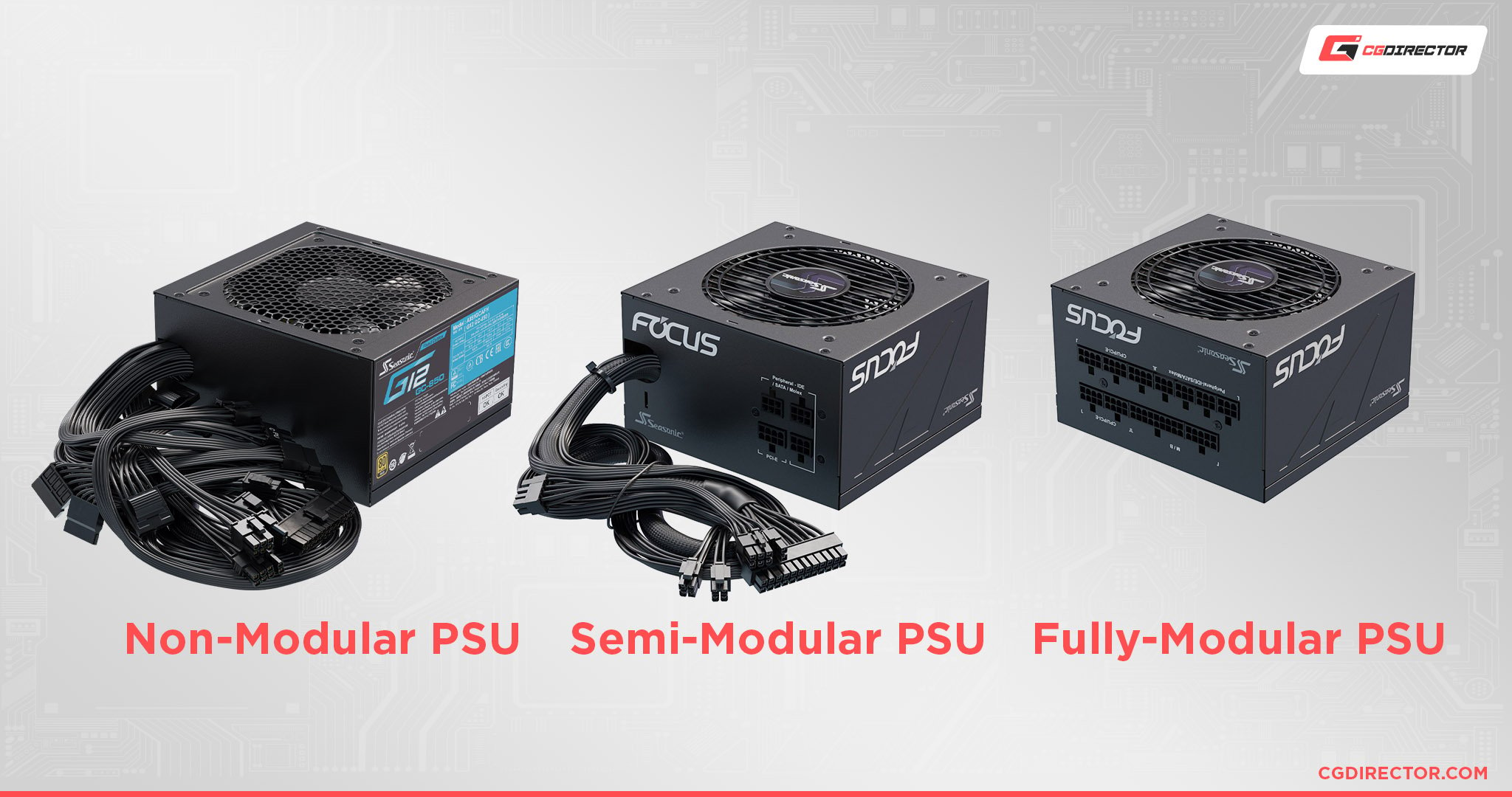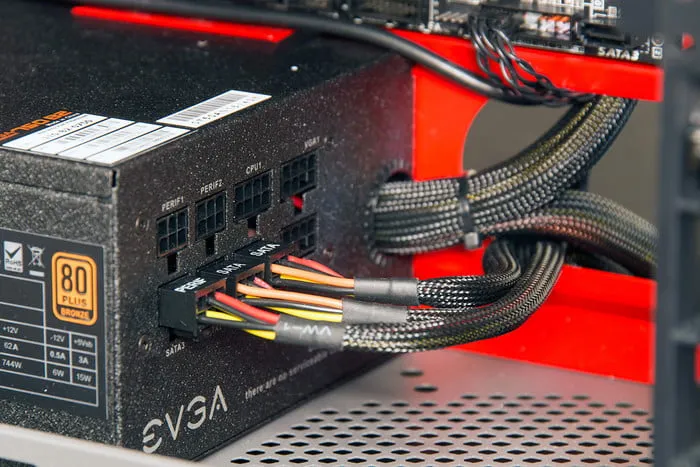What is a Power Supply Unit (PSU) & Why It Matters?
Introduction
A Power Supply Unit (PSU) is one of the most fundamental yet frequently overlooked components of a PC. It provides the essential power to all other components, ensuring they function correctly. Choosing the right PSU is crucial for system stability, longevity, and overall performance. In this article, we will explore what a PSU is, how it works, its importance, types, specifications, and how to choose the best one for your needs.
What is a Power Supply Unit (PSU)?
A Power Supply Unit (PSU) is a hardware component that converts electrical power from an outlet into a usable form for a PC. It supplies regulated power to components like the CPU, GPU, motherboard, storage devices, and peripherals.
Functions of a PSU
Voltage Conversion: Converts AC (alternating current) from the wall outlet to DC (direct current) used by internal PC components.
Power Distribution: Supplies power to various components through different connectors.
Voltage Regulation: Ensures stable power delivery to prevent fluctuations that could damage components.
Efficiency Management: Converts power efficiently to minimize energy loss as heat.
Why is the PSU Important?
A PSU is crucial because it directly affects system stability, energy efficiency, and hardware longevity. Here are some key reasons why it matters:
1. System Stability
A high-quality PSU ensures stable and consistent power delivery, reducing system crashes, freezes, and unexpected shutdowns.
2. Hardware Longevity
A PSU that provides clean, stable power extends the lifespan of critical components like the motherboard, CPU, and GPU by preventing power fluctuations and surges.
3. Energy Efficiency
Efficient PSUs convert more electricity into usable power while minimizing waste. This reduces electricity bills and heat output, keeping the system cooler.
4. Protection Against Power Issues
Good PSUs include safety mechanisms such as overvoltage, undervoltage, short circuit, and overcurrent protection to safeguard components from damage.
5. Supporting High-Performance Builds
Gaming PCs, workstations, and servers require robust PSUs to power high-end GPUs, multiple storage drives, and overclocked CPUs. Choosing the wrong PSU can limit system performance.
Types of PSUs
PSUs come in various configurations to suit different needs:
1. Modular, Semi-Modular, and Non-Modular PSUs
Modular PSU: Allows users to connect only the necessary cables, improving airflow and cable management.
Semi-Modular PSU: Some cables are fixed while others are detachable, balancing flexibility and cost.
Non-Modular PSU: All cables are permanently attached, making cable management harder but usually more affordable.
2. ATX, SFX, and TFX PSUs
ATX PSU: Standard PSU size used in most desktop PCs.
SFX PSU: Smaller PSU used in compact builds or mini-ITX cases.
TFX PSU: Slimmer and more compact, mainly for small form factor (SFF) PCs.
3. Redundant and Industrial PSUs
Redundant PSU: Used in servers, providing backup power in case one unit fails.
Industrial PSU: Built for extreme environments with additional protection and durability.
Key PSU Specifications to Consider
When selecting a PSU, various specifications determine its quality and compatibility with your system.
1. Wattage Rating
The total power output of a PSU is measured in watts (W). Choosing the right wattage depends on your system’s components. A basic office PC may need only 300-400W, while a gaming PC with a high-end GPU may require 750W or more.
2. 80 Plus Efficiency Ratings
The 80 Plus certification measures efficiency, indicating how much power is effectively used versus wasted as heat:
80 Plus White: 80% efficiency.
80 Plus Bronze: 82-85% efficiency.
80 Plus Silver: 85-88% efficiency.
80 Plus Gold: 87-90% efficiency.
80 Plus Platinum: 89-92% efficiency.
80 Plus Titanium: 90-94% efficiency.
3. Rails: Single vs. Multi-Rail PSUs
Single-Rail PSU: All power is delivered through one +12V rail, which can be riskier if overloaded.
Multi-Rail PSU: Distributes power across multiple +12V rails, adding extra protection against overload.
4. Connectors & Compatibility
Check that your PSU has the right connectors for your system:
24-pin ATX Connector – Powers the motherboard.
8-pin CPU Connector – Required for the processor.
PCIe Connectors – Powers the GPU (6-pin/8-pin/12-pin).
SATA/Molex Connectors – Powers storage drives and accessories.
5. Cooling & Noise Levels
PSUs come with different cooling solutions:
Fanless PSUs: Completely silent but suitable only for low-power builds.
Standard Fan PSUs: Active cooling with temperature-controlled fans.
Hybrid Cooling PSUs: Switch between fanless and active cooling based on load.
How to Choose the Right PSU for Your Build
Selecting the right PSU involves several steps:
1. Calculate Power Requirements
Use online PSU wattage calculators (from brands like Corsair, Cooler Master) to estimate power needs based on CPU, GPU, storage, and peripherals.
2. Consider Future Upgrades
If you plan to upgrade to a higher-end GPU or add more storage, get a PSU with extra wattage capacity.
3. Look for Reliable Brands
Popular PSU brands known for quality include:
Corsair
EVGA
Seasonic
Thermaltake
be quiet!
Cooler Master
4. Check Reviews & Warranty
Opt for a PSU with good reviews and a warranty of at least 5-10 years for reliability.
5. Choose a High-Efficiency Rating
Higher efficiency means less heat, lower electricity bills, and quieter operation. Aim for at least 80 Plus Gold if budget allows.
Common PSU Myths & Misconceptions
Higher Wattage = Better PSU – Not always; efficiency and build quality matter more than just wattage.
Any PSU Will Work with Any PC – No, connectors and power requirements must match your components.
Cheap PSUs are Good Enough – Budget PSUs often lack protection features and can damage components.
You Don’t Need More Wattage Than Your Components Use – It’s wise to have headroom for future upgrades and efficiency.
Conclusion
A Power Supply Unit (PSU) is a critical component that ensures stable and efficient power delivery to your computer. Choosing the right PSU enhances performance, longevity, and safety while reducing power wastage. Whether you're building a gaming PC, workstation, or general-use computer, investing in a high-quality PSU is essential for reliability and future-proofing your system.











0 comments:
Post a Comment